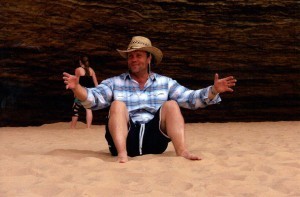Eric Bishop's Blog
October 17, 2013
On Writing The Sequel
Authors cheat, at least this one does. I borrow ideas from writer’s who have been through it before. Soon, I’ll be writing the sequel to The Samaritan’s Pistol. So I’ve asked Lehua Parker whom I admire and respect what it’s like to write familiar characters the second time around. I read an advanced copy of One Boy No Swim and was the first to give it five stars on Amazon. I’m not about to reinvent the wheel. Take it away Lehua!
What are the challenges in writing characters in sequels?
It all depends on whether the series is more like a burger from Five Guys or dinner at Ruth’s Chris Steakhouse.
When you walk into a burger joint, you pretty much know what you’re going to get. Some fiction, particularly serial detective fiction like Robert Parker’s Spencer series, is structured like your basic grilled patty in a bun. First book to last, Spencer changes his underwear and not much else. A crime is committed. It gets solved. Some shooting, drinking, and bed-hopping happens in between. The order the books are read in doesn’t matter much more than having a bacon cheeseburger one day and a jalapeño ranch burger the next. With infinite combinations of new toppings and special sauces to season the plot, there’s no reason to mess with the character of the ground chuck. And with no over-arching storyline, the series never ends.
For burger-lovers, this consistency is a good thing. For authors making bank with a series, it’s awesome.
But the whole dining experience changes when a series involves multiple courses and linen table napkins. Now readers want to savor each dish on the way to dessert.
Think of the Harry Potter series by JK Rowling. In each book the wizardlings had adventures, but there was a more important over-arching tale involving Voldermort and Harry that advanced until it was resolved at the end of the last book.
Like Mama says, if you eat dessert first, you’ll spoil your appetite. When a series is structured as a book per course there’s usually little point to going back and eating the carrots once you’ve filled up on the cherry cheesecake. Knowing Dumbledor’s end game and Snape’s true character spoils all the delicious tension built and sustained throughout the previous six books. You may want to linger at the table, but you pretty much know the meal’s over. It’s time to tip the waiter and hand your parking stub to the valet.
Which leads me to my point that when you’re telling a larger cohesive story it’s important for characters to change and show growth in each book.
In a burger book, not so much. A juicy char-broiled book series is all about enjoying similar experiences with beloved characters over and over again.
Here’s another example.
The Niuhi Shark Saga is a multi-course luau complete with roasted pig, hula dancers, and coconut cake for dessert. It’s one loooooong story broken into bite-sized MG/YA books.
Through the series Zader, the protagonist, changes from the odd kid who always has to be rescued to the kid who questions everything to the young man who determines for himself how he will live his life. In each book I have to consider where Zader is in terms of his eventual transformation and where the other characters are in relation to both Zader and their own conflicts and ambitions.
I gotta tell you, it helps that many of my characters are going through adolescence, arguably the biggest transformative time in anyone’s life.
In book one, One Boy, No Water, Zader is hiding in the shadows. There’s a lot of symbolism about young, tender things growing in the protective safety of the reef. He has Uncle Kahana, Jay, and Char Siu to guide and support him, and he’s pretty comfortable being led. At the end, Zader recuses his brother from a paralyzing fear and himself from bullies. This triggers his predator nature, and it’s obvious he’s outgrown the idea of camouflage as safety.
In book two, One Shark, No Swim, Zader’s grown enough that he no longer accepts what he’s been told as fact. Uncle Kahana is unwilling to deal directly with the changes he sees in Zader, and that causes problems. Char Siu, Zader’s gal-pal, is starting to understand that there’s a big difference between boy-world and girl-world and she’s trying to navigate deep water while the boys are still splashing in the shallows. Jay begins to get caught up in competitive surfing, leaving Zader alone on the sand. These conflicts and others finally drive Zader to listen only to himself and make a choice no one expects.
In book three, tentatively titled One Fight, No Fist, there are consequences for Zader’s choices. He’s older, more secretive, and both less trusting and more protective of his family and friends. He’s bolder, more aggressive, and is ready to take the fight to his stalker. He’s so far from where he started, he’s almost a different person. Consequently, all of the other characters have to change and adjust to this new person—or not and let the sparks fly.
The changes the Niuhi Shark Saga characters go through is really the storyline that ties all the books together. Without character growth the series would be like The Simpsons tv show—Homer chasing one doughnut after another, hanging out at Moe’s, and never learning or suffering from the consequences of his adventures for more than one episode.
There are a lot of doughnut lovers who crave that consistency. Go, Homer.
But if you’re in the mood for something different, try my pineapple upside-down cake. You won’t believe what happens next!
THANK YOU LEHUA! I highly recomend her books. Here’s a bit more about her and some links to both Amazon and Barnes and Noble.
Lehua Parker’s Biography
Lehua Parker is originally from Hawaii and a graduate of The Kamehameha Schools and Brigham Young University. In addition to writing award-winning short fiction, poetry, and plays, she is the author of the Pacific literature MG/YA series the Niuhi Shark Saga published by Jolly Fish Press. One Boy, No Water and One Shark, No Swim are available now. Book 3, One Fight, No Fist will be published in 2014.
So far Lehua has been a live television director, a school teacher, a courseware manager, an instructional designer, a sports coach, a theater critic, a SCUBA instructor, a playwright, a web designer, a book editor, a mother, and a wife. She currently lives in Utah with her husband, two children, three cats, two dogs, six horses, and assorted chickens. During the snowy Utah winters she dreams about the beach.
Connect with Lehua Parker
Blog & Free Short Stories: http://www.lehuaparker.com/
All things Niuhi Shark Saga: http://www.niuhisharksaga.com/
Facebook: https://www.facebook.com/LehuaParker
Twitter: @LehuaParker
Goodreads: https://www.goodreads.com/author/show...
Pinterest: http://www.pinterest.com/lehuaparker/
Email: AuntyLehua@LehuaParker.com
One Boy, No Water
Amazon
Barnes & Noble
http://www.barnesandnoble.com/w/one-boy-no-water-lehua-parker/1112184898?ean=9780984880171
Goodreads
https://www.goodreads.com/book/show/1...
One Shark, No Swim:
Amazon
Barnes & Noble
http://www.barnesandnoble.com/w/one-shark-no-swim-lehua-parker/1114940697?ean=9781939967107
Goodreads
https://www.goodreads.com/book/show/1...
Blurb for One Boy, No Water
11 year old Alexander Kaonakai Westin—Zader for short—is allergic to water. One drop on his skin sears like white-hot lava. Too bad a lifetime of carrying an umbrella and staying away from the beach isn’t the answer, especially when his popular almost twin brother Jay looks destined to become the next Hawaiian surfing sensation.
But avoiding water is just the tip of Zader’s troubles. Eating raw seafood and rare meat gives him strange dreams about a young girl in a red cape and nightmares about a man with too many teeth. There’s also the school bullies who want to make Zader their personal punching bag, the pressure of getting into Ridgemont Academy, and the mysterious yearly presents from his birth family that nobody talks about.
It’s enough to drive Zader crazy, especially when he suspects old Uncle Kahana and ‘Ilima know a secret that explains his unusual biological quirks. After all, they were the ones who found him newborn and abandoned on a reef and brought him to the Westins to adopt. Uncle Kahana swears Zader is ‘ohana—family—by blood as well as adoption. Too bad he’s not saying more.
When Jay quits surfing after a shark scare, Zader decides it’s time to stop hiding in the shadows and start searching for answers.
Growing up adopted in Hawai‘i just got a little weirder.
Blurb for One Shark, No Swim
There’s something bugging adopted Zader Westin, something more troubling than his water allergies where one drop on his skin burns like hot lava. It’s bigger than his new obsession with knives, designing the new murals for the pavilion with Mr. Halpert, or dealing with Char Siu’s Lauele Girlz scotch tape makeover. Zader can’t stop thinking about a dream, the dream that might not have been a dream where Lē‘ia called him brother then jumped into the ocean and turned into a shark.
Zader’s got a lot of questions, not the least being why he’s hungry all the time, restless at night, and why he feels a constant itch on the back of his neck. It’s making him feel like teri chicken on a pūpū platter, but Zader doesn’t want to think about chicken, not with his growing compulsion to slip it down his throat—raw.
With Jay busy at surf camp and Uncle Kahana pretending nothing’s happening, Zader’s left alone to figure things out, including why someone—something—is stalking him before it’s too late.
Summer in Lauele Town, Hawaii just got a little more interesting.
July 3, 2013
DON’T WORRY BE GRUMPY
 The dog was onto another bird and maybe more, tail up wagging, working the brush and knee length grass. I thumbed the safety off just as three pheasants broke into the sky. My angle wasn’t right, but Elden shot both roosters dead with one shot each. He nailed the second bird before the first one hit the ground.
The dog was onto another bird and maybe more, tail up wagging, working the brush and knee length grass. I thumbed the safety off just as three pheasants broke into the sky. My angle wasn’t right, but Elden shot both roosters dead with one shot each. He nailed the second bird before the first one hit the ground.
“Damn fine shootin!” I hollered
Elden said something I couldn’t make out. I had my earplugs in anyway. The shot had been spectacular. All three pheasants rising into the morning sky, a hen between two roosters. Elden shot the rooster to the left, then passed the hen and hit the rooster to the right, all in less than a second. I took out the plugs and strolled over.
Elden didn’t look at me. “Didn’t seat the stock into my shoulder. Gonna leave a bruise.”
“On the first or second bird?” I asked.
“Both.” Elden opened the action on his double barrel shotgun, took out the spent shells and then reloaded. “Sure don’t make shotgun shells like they used to.”
“Whattaya mean?” I asked.
“Cheaper powder. The plastic casing’s thinner.”
“Seemed to work fine a second ago.”
“Maybe. Can’t reload ‘em though.”
“Sure ya can.”
“Only if you wanna risk a misfire or a blown casing.”
Elden’s black Labrador trotted happily, bird in his mouth toward us. He dropped it dutifully at Elden’s feet then went to get the second rooster.
“Tore the bird in two,” Elden said. “Shoulda let him fly a little further before I blasted him.
“Let me see.”
Elden handed the bird to me. I turned him over, but couldn’t see what Elden was so concerned about. I handed it back as the dog dropped the next bird.
“It’ll make a nice pheasant dinner,” I said.
On the way back to the truck Elden shot two more. We’d agreed to shoot three pheasants each. I’d shot two earlier and didn’t mind Elden shooting one of mine.
“Sure is a good dog,” I said. “Retrieved every one. Worked hard.”
“Sure paid a lot for him.”
I knew for fact Elden got the dog for free because my cousin had given him pick of the litter for hunting access on Elden’s ranch. But if I said so I’d get an argument or some claim of my cousin trespassing.
We pulled off the gravel road to reset a gate that’d come off its hinges then got back in Elden’ truck.
“Ranch is too small if you have to use reverse,” Elden grumbled as we backed away from the gate.
We cleaned the birds at Elden’s house and he gave me a few gallon zip lock freezer bags for mine. Then Elden disappeared and came back with a small cooler that had ice in the bottom. I was headed back to my own ranch, but Elden knew I’d stop to check cows and move some irrigation lines, and that it’d be several hours before I could put the birds in the freezer.
“Thanks,” I said. “I’ll bring it back.”
Elden didn’t say anything.
“Sure was some good huntin’ this morning.”
“Was better a decade ago. Fewer birds every year.”
Elden strolled with me toward my truck.
“Think beef prices’ll hold a few weeks till we sell?” I asked as I got in.
“No.”
“Been steady for a while now.”
“Won’t matter. Money’s already spent.”
The dog came over and Elden eyed the animal.
“Sure was a nice morning,” I twisted the key and the pickup belched diesel soot.
“It’ll be hot as all get out in a few hours.”
I put my pickup in reverse, thinking the ability to back up was pretty nice thing.
June 6, 2013
RIM TO RIM, AN OBSESSIVE KIND OF STUPID
 A gigantic hole of gullies and side canyons. A main channel several mile away that’s so deep you can’t see the Colorado River from Grand Canyon’s edge. I’ve blogged about floating there, an eighteen day rafting adventure. It was on my fifth trip I met I guy named Steve with a booming voice and sense of humor to match. We became instant friends and he told me of hiking from one rim to the other, of crossing Grand Canyon by foot in a day.
A gigantic hole of gullies and side canyons. A main channel several mile away that’s so deep you can’t see the Colorado River from Grand Canyon’s edge. I’ve blogged about floating there, an eighteen day rafting adventure. It was on my fifth trip I met I guy named Steve with a booming voice and sense of humor to match. We became instant friends and he told me of hiking from one rim to the other, of crossing Grand Canyon by foot in a day.
Steve and I kept in touch, skiing Alta’s chest deep powder in the winter. Then he invited Janilee and I to take the epic hike. The first time we went south to north, descending the South Kaibab Trail with headlamps until sunrise halfway down. We crossed the river at the bridge near Phantom Ranch, then ascended the North Kaibab trail to the Rim where it was snowing.
It’s ludicrous. Going down four thousand feet and then up six. It’s stupid to make my body do so much in a day. Nine hours of hiking over twenty miles—blistered feet and deep friend muscles lasting into the next week. All but the superhuman don’t walk right the next day. It’s called “The Kaibab Shuffle,” a self-imposed affliction earned by adventurous hikers.
On our rim to rim hike a few weeks ago, Janilee kicked my ass. I ran for weeks, tried to lose some weight, got good sleep the night before but the last four miles sucked. My metabolic fuel was spent as I turtled my way up what I swore were never ending switchbacks. She always kicks my ass. I love every second of it. She was waiting for me at the top as I limped up the last switch-back to Mumford and Sons on my ipod and “fell heavy” into her arms.
Two weeks later, I’m thinking of my next hike. I can almost walk pain free.
I understand people who bike from Logan to Jackson, and those who lose toe nails to marathons. My desire to achieve is no different. I hike rim to rim because I can. When I reach the top and look across the massive hole, thinking my feet were on the other side ten hours ago, the accomplishment eclipses the pain. It’s an obsessive kind of stupid.
May 22, 2013
A MIDNIGHT HEADACHE
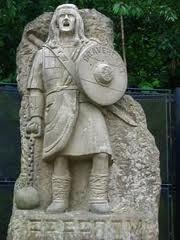 Before Mel went crazy he made some good movies, Braveheart in particular. One scene haunts me. Near the end, he rides a horse into an enemy’s bed chamber and crushes his skull with a ball and chain attached to a stick. The weapons name doesn’t matter. Dead is dead, and I’m scared of dying. My fear is about how. Maybe I’ll get lucky. Waking for a second to look up at a horse doesn’t seem so bad. Janilee says I might snore through it anyway. Awake or not, something flies toward my head and in the next instant I’m gone. I still worry because most aren’t so lucky. Will it be a disease? Will my body wilt to nothing with people crying? Please no.
Before Mel went crazy he made some good movies, Braveheart in particular. One scene haunts me. Near the end, he rides a horse into an enemy’s bed chamber and crushes his skull with a ball and chain attached to a stick. The weapons name doesn’t matter. Dead is dead, and I’m scared of dying. My fear is about how. Maybe I’ll get lucky. Waking for a second to look up at a horse doesn’t seem so bad. Janilee says I might snore through it anyway. Awake or not, something flies toward my head and in the next instant I’m gone. I still worry because most aren’t so lucky. Will it be a disease? Will my body wilt to nothing with people crying? Please no.
A few years ago, my friend called from the hospital after a heart attack saying he’d be released the next day. On the way through the lobby he stroked, losing half his body including speech. We skied together, told jokes, laughed at the good ones, and ate gourmet food. Now he spins in a circle, and I pray for a knock on the head when my time comes.
On August 24, 2013 I’ll be a traditionally published author. People I don’t know will buy The Samaritan’s Pistol at Barnes and Noble. Eighty thousand of my words will live forever. The story of Jim Cooper, my pistol wielding Samaritan, and the community that protects him. I’m proud of it. I worked my ass off to make it publishable and wouldn’t take no as a permanent answer because too many of my friends (both dead and alive) influenced the characters. It’s my story and theirs. Still, I’m a bit freaked out by my unborn grandchildren reading my words. The world I created— alive in people’s minds. Will it remind people of someone they knew or know? I hope so.
An uncle died this past week, my mom’s youngest brother. I have good memories of him. He lived with us when I was a little kid. We should have spent more time together. The assumption of endless opportunities until there’s not; it sucks to suddenly miss someone once their gone. He joins a list of dead friends, a cast of characters to inspire more novels, people whose essence deserves capturing. With any luck I’ll get a few of them done before the horse and rider come to my bedroom.
March 25, 2013
WRITING IT RIGHT: AVOIDING TELEPATHIC FROGS AND COFFEE UP THE COWBOY
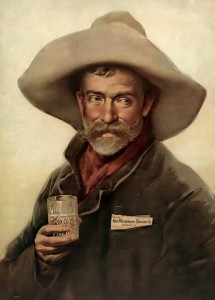 The eighth rewrite of my first novel was far from perfect, but I knew I was done. I’d either get some traction with a publisher or burn the thing in my man cave. Other authors talked of not getting published until their fourth or fifth book, if ever. Maybe I’m stubborn, but I enjoyed the rewriting process, and committed to making my first novel better. I added a few new characters, a mafia patriarch coming out of retirement, a stoner ski bum at a Wyoming grocery store. There was more of the dog. My brother Matt likes the dog. I like the dog too, but the story is pretty much the same as when it flew from my fingertips four years earlier. The plot and crucible I dropped the protagonist into were all intact. The original manuscript was one hundred and forty thousand words. The one Jolly Fish Press will print this August is a trim eighty four thousand. So what’s the difference besides brevity? Here are three things I learned during four years of rewrites that continue to shape my writing.
The eighth rewrite of my first novel was far from perfect, but I knew I was done. I’d either get some traction with a publisher or burn the thing in my man cave. Other authors talked of not getting published until their fourth or fifth book, if ever. Maybe I’m stubborn, but I enjoyed the rewriting process, and committed to making my first novel better. I added a few new characters, a mafia patriarch coming out of retirement, a stoner ski bum at a Wyoming grocery store. There was more of the dog. My brother Matt likes the dog. I like the dog too, but the story is pretty much the same as when it flew from my fingertips four years earlier. The plot and crucible I dropped the protagonist into were all intact. The original manuscript was one hundred and forty thousand words. The one Jolly Fish Press will print this August is a trim eighty four thousand. So what’s the difference besides brevity? Here are three things I learned during four years of rewrites that continue to shape my writing.
1) Staying true to viewpoint character. My good friend and fellow author, Daniel Coleman, taught me this. In my first draft I jumped between heads like a telepathic frog. One second I was narrating how much the horse enjoyed his oats. The next sentence the dog was barking at something. I’d end the paragraph with the protagonist pining over lost love. All of them were interesting (at least I thought so) but it led to confusion. When I reread the original manuscript it’s easy to think the dog eats the oats, the horse is barking and the animals are engaged.
2) Active vs. passive voice. My original manuscript read like Dan Rather’s evening news. This and that was. Things were or used to be. Mark Twain said, “The difference between the almost right word and the right word is really a large matter—it’s the difference between the lightning bug and the lightning.” As a writer, I think this applies to all seven parts of speech but especially the verb.
3) Showing dialogue. I thank Tim Keller and Chad VanZanten from my League of Utah Writers critique group for this. When an old cowboy ignores everyone but mutters “Mornin’” to the coffee pouring cute waitress, it shows his crankiness better than I could ever tell it. Most of the fifty thousand words that are no longer in my manuscript were about telling the reader what to think instead of trusting them.
As luck would have it, THE SAMARITAN’S PISTOL found a home with Jolly Fish Press and avoided the man cave’s fiery furnace. I hope your words find similar success. I’m curious. What has shaped your writing journey?
March 19, 2013
REAL MEN DON’T NEED THE FORCE
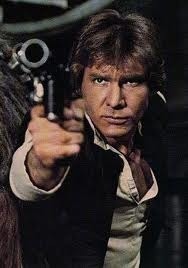 One hot July afternoon between my junior and senior years of high school, I was crashed on the unheated waterbed in my basement bedroom. Alone with my tunes. A twist of the knob to rattle the house, the thump of the drums, a base riff through the woofer.
One hot July afternoon between my junior and senior years of high school, I was crashed on the unheated waterbed in my basement bedroom. Alone with my tunes. A twist of the knob to rattle the house, the thump of the drums, a base riff through the woofer.
Van Halen’s latest spun on the turntable. A crackle through the speakers as the needle touched vinyl. Then the music and I was back in the Salt Palace reliving the concert I’d attended days earlier.
Eddie Van Halen’s left hand zipped with karate speed up and down the guitar’s neck. His brother, Alex, pounded the drums. Mike Anthony plucked his bass guitar, a smile covering his face between sips from a bottle of Jack Daniels. He swallowed the last ounce to a cheering Salt Palace crowd as the second encore started. The final song put the crowd into a riot level energy release as cushions torn from chairs flew through the air. I stood on my ninth row seat, watching the fans on the floor as much as the band. The crowd was a chaotic wave, pumping and moving, connected through hard rock as the band played the hit song, “Panama”.
I was there again, a slice of teenage heaven, head banging with my best friends, singing along until my father’s yell cut through the rock euphoria.
“TURN—THAT—DOWN!”
Extrication from the waterbed was a pain in my teenage ass, but I did it anyway. I’d just rolled back into the bed when Dad burst through the door.
“What’d he say?” Dad stood over me, poised like a preacher. “Reach down between his legs and do what?”
“Ease the seat back, Dad. He says: ‘reach down between my legs and ease the seat back’”
Dad huffed off, and I made the promise. No matter what happens, I will not judge my kid’s music.
It wasn’t just my folks that hated hard rock in the eighties. It was all grownups. Every last one of them it seemed. They organized church devotionals focused on wholesome and appropriate music. They’d find a Sabbath observing music professor to speak about how rock and roll stars sold their souls to the devil for fame. Proof was offered over the pulpit in the bands names. KISS stood for Kings In Satan’s Service, or Kings In the Service of Satan, depending on what grownup was giving the lecture. AC/DC stood for Anti Christ Devil’s Children. Then the sermon would move to symbols. They’d show Ozzie Osborne with an inverted crucifix and pretend to know what the upside down question mark on Blue Oyster Cult’s albums meant. Steely Dan was the best. Steely, they told us, was a giant dildo, while Dan was a black man. It always ended the same way. They’d throw in the clinchers. What teenager would argue that The Doobie Brothers weren’t out to promote marijuana, or that a band like Black Sabbath could be anything but evil personified.
After two hours, ending with all three verses of “Come Come Ye Saints” or the equivalent, someone would pray for God to restore our better judgment. We’d yawn our way outside, unroll our car’s windows and crank Van Halen’s “Running With the Devil” as we fled the parking lot.
We read magazines like Hit Parader, Circus and Rolling Stone, searching the paragraphs, for news about what music would be released that month, or what bands were going on tour.
In the end it didn’t matter. We liked our music and our parent’s worry added to the appeal.
With this backdrop, I reiterated the promise. I’d be the cool parent. The guy who might not appreciate what my kids listened to, but who would allow them to be teenagers, young and full of life, free to crank tunes without judgment.
I kept the promise religiously through the years, practicing with grunge in my twenties. When Pearl Jam, Nirvana and Soundgarden eclipsed the glamrock of the late eighties, I wore flannel like everyone else.
Kurt Cobain’s prophetic suicide hurt. His lyrics swore he didn’t, but truth was: he really did “have a gun.”
We had four daughters. They grew, and I raised them on tunes from my day mixed with whatever they liked. I fancied myself a rock instructor, a parent who cared enough to educate his offspring.
As my children’s interests grew beyond my tastes, I tolerated Lady Ga Ga’s “Poker face”, Avril Lavigne’s “Damn Cold Night”, and Adele “Rolling in the deep”. I even chuckled with them when Katy Perry “Kissed a Girl and Liked It”.
The rap thing was tougher until I saw Eight Mile and Emminem’s brilliant lyrics became viewing glass into an urban life I couldn’t fathom.
So the years have zipped by with the promise intact. Then I became a writer.
I’ve enjoyed literature with my kids, even read some of what they like. They’ve patiently humored me as I’ve read chapters from my novels. I’ve taken their critiques that prove nobody cuts through dad’s bullshit faster than a teenage daughter.
My seventeen year old read Lord Of The Flies, for her English class, like I did my junior year. She gave me a copy for Christmas that I re-read over the holidays. A discussion followed. I was proud when she grasped symbolism that had sailed past me.
A few years ago, I picked up the family’s copy of Twilight. The tattered cover, sand in the margins and dog-eared pages proved how much my kids loved it.
I quit reading before page ten.
Harry Potter carried me through the first book. I set the second aside after the third chapter for The Adventures of Huckleberry Finn.
Then one night we sat down as a family to watch Star Wars.
I had an epiphany when Han Solo said, “Trust me kid. Hoki religion and ancient weapons are no match for a good blaster by your side.”
I jumped up and stood in front of television. “The problem with you kids today is your books!”
“You make a better door than a window.” My oldest daughter spoke for all of them.
“Shut up and listen.”
They responded by scooting down the couch to see around me.
“All this special powers crap started with The Force!” I mocked. “You can’t move objects with your mind.”
“We get it dad,” one of them said.
“No you don’t. Luke and Harry Potter. They all suck!”
A twenty five year old synapse connected inside my brain as distinctly as a water bed’s wave. I swear it sounded just like Dad. “Read about real people. Han Solo doesn’t need the force!”
Karma hit me as I walked away, like my dad once did, from children who had already dismissed my sermon.
Technically, I guess, I’ve kept the music promise. But if asked, I’d gladly proclaim my thoughts over a pulpit about today’s lousy fiction.
I tease dad about how the decades have brought vindication. The satanic music of the eighties is now classic. “Crazy Train” starts the second half for college basketball games. Teenagers become “street-light people” at school dances. A hundred kids yelling “We’re Not Gonna Take It” twenty five years after its release proves my first instinct.
I knew as a teenager the sermons and lectures weren’t about saving me. It was about adults who hated electric guitars and loud music; today my scorn for stories about teenagers with superpowers is just as strong.
Tonight I’ll turn out the light and cover my youngest daughter who will probably fall asleep with a Harry Potter book in her hands. I’ll mark the page with a business card and kiss her forehead.
Before working out, I’ll stuff skull-candy buds in my ears. The Ipod’s crackling scroll now music’s precursor instead of needle on vinyl static. I’ll run on the treadmill, sweating to Hard Rock, wisped from middle age, to arenas and concerts, to bonfires and parties and all the way to my basement bedroom and thoughts of Dad, who, like me, thinks Han Solo is the better role model, because real men don’t need the force.
February 12, 2013
PROFANITY NOT INCLUDED CONTINUED
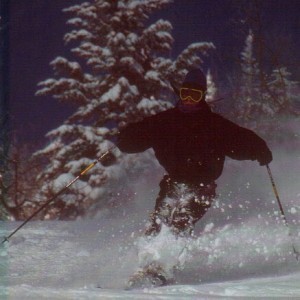 Thanks to all who read or commented last week about everything from F-bombs to biblical swearing. I enjoyed standing center field as feedback flew at all degrees between hard left and right.
Thanks to all who read or commented last week about everything from F-bombs to biblical swearing. I enjoyed standing center field as feedback flew at all degrees between hard left and right.
Now for my opinion: Even though profanity doesn’t bother me for the most part, I empathize with those who can’t stand it. I said, “for the most part” because even I have a limit: For me, cussing God with the breath he gave us is profane beyond my ability to fathom.
I volunteer as a Ski Patroller at Beaver Mountain in Northern Utah where I deal with it regularly. Several times a year I ask teenage boys and college age kids to watch their language. I was sixteen and bullet proof once too, but I don’t remember disrespecting Deity while making turns in his heaven sent powder.
When I hear it, I’m flat out offended.
Something ignites deep in the spot that makes me want to hit; I have to stifle the urge to tear the snowboard from their feet and beat an apology from their blasphemous vocal chords. As a representative of the Seeholzer family and their mountain, I could never do that. Instead, I politely ask them to stop. Usually they respond with a bit of embarrassment and an apology. I have to accept, even though I want to revoke their passes after a thirty minute lecture.
Then there are reality television bimbos who can’t stop saying OMG. Instead of gratitude for flying to some exotic locale, going to dinner in a nice restaurant, looking at the ocean or viewing buildings and architecture they keep saying it. For those of us old enough to appreciate the metaphor, it’s as though their minds are scratched.
Your posts taught me that everyone takes offense at something; I appreciate other people’s sensitivities even if they aren’t shared.
Beyond profanity, I’m curious what tempts people to either flee the scene or pick up a donkey’s Jawbone in righteous indignation. (Notice the word ‘donkey.’ I’m holding tight to my cuss free pledge while writing on the subject.)
Here’s some of mine:
1) One sided propaganda and political spin.
2) Spirituality without vulnerability.
3) Multi-level marketing.
4) Poorly written literature about teenagers with superpowers.
AND THE BIG ONE:
5) Raisins. (More to come on the last two subjects in future blog posts.)
What’s your list? Agree or not, I’ll respect it. Just don’t let me catch you cursing Deity at Beaver Mountain on a good powder day.
February 6, 2013
PROFANITY NOT INCLUDED
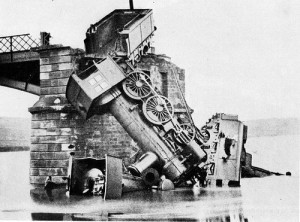 In previous posts, I’ve cussed a bit here and there, even sworn about my religious experience, AKA Mormon mission to Pennsylvania. My first blog was about my soccer playing daughter. I encouraged her in a youth conference letter to: GO FORTH AND KICK … (insert the last part of Harass.) She giggled when she read it. Her mother and I were leaders at the conference and it was fun to see her smile at her father’s loose tongue. Too loose, some would claim, and I don’t disagree. I wasn’t born with a foul mouth. It’s learned behavior that started on a dairy when I was thirteen. The owner, a man named Oscar, claimed anyone who didn’t cuss “never owned a hay baler.”
In previous posts, I’ve cussed a bit here and there, even sworn about my religious experience, AKA Mormon mission to Pennsylvania. My first blog was about my soccer playing daughter. I encouraged her in a youth conference letter to: GO FORTH AND KICK … (insert the last part of Harass.) She giggled when she read it. Her mother and I were leaders at the conference and it was fun to see her smile at her father’s loose tongue. Too loose, some would claim, and I don’t disagree. I wasn’t born with a foul mouth. It’s learned behavior that started on a dairy when I was thirteen. The owner, a man named Oscar, claimed anyone who didn’t cuss “never owned a hay baler.”
I’ve buggered my knuckles while wrenching machinery, sometimes in sub-zero temperatures, been kicked by horses, slipped on ice, stubbed my toes in the dark, been burned, scraped, lacerated and sworn every time. My dad, whose swearing has diminished over the years, has asked, “Does that make it feel any better?”
I read a study a few years ago claiming that because swear words were connected in our brains as emotional language, the act of cussing in a tense situation actually relieved stress. Some would argue swearing increases our pain when the wrench slips from the baler, but I agree with Oscar and can honestly answer “yes” to dad’s question.
In those moments, cussing makes me feel a heck of a lot better.
So here’s the problem. While it makes me feel better, it makes others uncomfortable. When it comes to literature, I don’t mind it any more than Oscar did, but I’m sensitive to those who do— to a degree.
An author whose writing I admire, Andrew Smith, cusses up a hurricane in The Marbury Lens and its sequel Passenger. In addition to a great story, Andrew puts on a writing clinic as the rough edged teenage boys talk like teenage boys do. To write it any other way wouldn’t do the story or characters justice in my mind. In Richard Paul Evans books he’ll allude to a cussing character, which has worked for me.
The far end of striking profanity in literature comes from a friend and fellow author whose story included a direct quote from Mormon Prophet Brigham Young. The quote was pertinent to my friend’s story and it was quoted precisely as it came from Brigham’s mouth (over the pulpit I might add.) Sensitive to their audience, the publisher scrubbed the swear word.
To this I said “You’ve got to be freaking kidding me! That’s taking it just too darn far!”
I’m guessing the editor at the publisher (which is named after a sweet smelling tree that’s used for fence posts, and a place where Daniel Boone hid from the Indians) has ever owned a hay baler.
I’ve gone on long enough. What the heck do you think?
The idea for this profanity free blog post was inspired by friend and fellow author Teri Harman’s post on clean romance which I encourage reading. http://www.teriharman.com/2013/01/non...
January 28, 2013
Holstein Bull Sighting in Grand Canyon
A Ted Nugent interview caught my attention several years ago when he said, “The silence of the swamp and the roar of fifty thousand fans—all magical stuff.”
The author part of me is drawn to contrast. The speaker who clips along, but then slows to make a point holds my attention far better than the monotone slowly delivered drivel I suffer through all too often.
Most of us tweet and facebook. We sell, emphasize and focus group ideas. But when I see something that’s truly unique, that differs from what I’ve come to know, I’m traumatized in a good way, because I walk away changed.
Maybe contrast explains why my friend Roger listened so carefully in 1995. Day three of our Grand Canyon float trip found us in Redwall Cavern on the Colorado River. A pristine place with an overhanging ceiling covering a football sized field of sand. We’d tossed the frisby, thrown the football and had lunch. Several people were in siesta mode, sleeping away calories while Roger and a few others visited near the shoreline.
Perhaps I wanted to impress the group. Prove I wasn’t as green at everything else as I was on the oars. So I told them of going to work for a dairy farmer named Oscar. How my best friend Wayne and I, who were thirteen at the time, milked the cows on a dairy seven days a week. I took four days off in sixteen months. Wayne took even fewer.
Then I told them of a bull named Hoover and I think it was the last thing my new friend Roger expected to hear.
Hoover stood just over six feet at the shoulder, a giant Holstein, with an even temperament. My boss, Oscar, only owned part of him. A third as I remember. Two other farmers claimed the rest. They rotated Hoover between dairies. A few months to cover the cows had to’ve been a great life. Eat, sleep, hope a young heifer is receptive. Hoover was “the man” before anyone invented the phrase.
Wayne and I would arrive at the dairy about five pm. The first day Hoover was put in with the cows Oscar met us at the barn.
“He’s a lover not a fighter,” Oscar said. “Wants to eat and fornicate mostly.”
Wayne and I laughed. We were thirteen. What can I say?
“Keep an eye on him. Don’t piss him off,” Oscar warned.
I’ve a bone to pick with anyone who claims boys can’t be responsible—for the most part. Each evening we’d herd the fifty or so cows into their holding pen. From there we’d bring them into the milk-parlor nine at a time. A Folgers can of grain would entice them into the proper position where we’d lock them in a headstall. The veterans understood. Getting milked was good and the rookies soon learned from the veterans. We’d rotate the three automatic milkers through the nine cows that stood side by side. When all nine were milked, we’d turn them out to the larger corral. Then we’d let nine more in and repeat the process.
Wayne and I traded nights. While one of us milked the other fed calves and put hay in the mangers. With all the cows milked we’d both clean up and head home.
It all went without incident, even with Hoover roaming about. A few times he chased a cow into the holding pen, but we were able to separate him okay once he’d finished his business. Mostly Hoover napped the day away between romantic interludes, which is what he was doing one day as Wayne and I herded the cows into the holding pen. The cows strolled from the shed where Hoover was bedded on fresh straw. Wayne and I came up behind him. Hoover’s eyes were shut tight, perhaps dreaming.
His legs were tucked beneath his belly, and his entire body rose with each breath. When he exhaled, the straw fluttered near his nostrils.
This is the part where I’ll recommend reading another blog post if you’re an animal rights activist. I’m not proud of what I’m about to write, but in the end no animals were killed or permanently damaged, and some people have seen great humor, especially Roger, in Redwall Cavern.
Wayne shush signaled me with his finger to his lip and snuck behind Hoover whose testicles rested beneath his tail. Hoover’s package was the size of a plastic grocery store bag with two large grapefruits. Before I knew it, Wayne lifted his foot and stomped.
Hoover exploded to his feet and Wayne and I sprinted into the milk parlor. Hoover’s stall was through the wall from us. The building shook and dust settled from ceiling boards from what I guessed was an extremely pissed bull bashing his head against the wall. Snorts and grunts and banging continued for several minutes. The milk parlor door was split half way to allow the top to be opened for ventilation in hot weather. We locked the bottom half and peered down the wall as the ruckus continued. Several minutes later we saw Hoover’s Brass nose ring emerge through the doorway. The same lungs that moments before had wiggled the pile of straw now blew bull snot sideways several yards. A sound like someone striking concrete with a sledgehammer was Hoover smacking the Corral’s cement floor with his front hooves. He’d snort, toss his head, and smack the concrete, sometimes all at once. We peered down the wall as Hoover inched out; and we came to realize what was taking him so long. When his hind feet emerged he moved them in unison. He’d step with one front hoof, toss his head, blow snot, stomp and then step and stomp with the other front foot before jumping with both back feet at the same time.
Once his body was through the open doorway he spun to look at us. If you’ve attended a rodeo and seen the clowns taunt the bulls, after the cowboys are beat to hell, you have a reference. Wayne and I didn’t have a barrel to jump into. He fake charged several times while we stood like the teenage dip shits we were, behind a cobbled together lower half of a plank door that could’ve been splintered to toothpicks. By and by it didn’t happen because while Hoover’s spirit was willing, but his balls hurt too bad to move quick.
I milked and Wayne fed while Hoover stood. The head tossing and stomping and snorting slowed until he’d see one of us and get all fired up again, but all it amounted to in the end was some posing.
I’d turn nine cows from the barn and they walked past Hoover who tossed his head to hurry them along to their mangers. We swept and cleaned the equipment at the end of the night and left Hoover standing where he was.
I don’t remember talking it over the next day at school or worrying much about it. When we returned twenty four hours later and went to herd the cows into their pen, Hoover stood looking. He always faced us from then on, keeping that tossing head between us and his family Jewels.
Halfway through the milking Oscar stopped by.
“Hoover must’ve had trouble with one of them cows. Come up lame this morning.”
“Hadn’t noticed,” Wayne responded.
“Eatin’ and fornicatin’ all day.” Oscar rubbed his whiskers. “Hoover don’t know how good he’s got it!”
Wayne and I chuckled.
Hoover lived to sire hundreds more calves. Oscar was jealous, and I’ve lived long enough to be glad no permanent damage occurred.
My kids bug me to tell the Hoover story and how Roger went bright red as he lay on the sand clutching his belly back in 1995. We’ve been back to Redwall a few times. The “Hoover” story’s always a hit. There’s plenty of build up; so I think folks are better braced for the contrast of Grand Canyon’s serenity and the story of some idiot teenage boys, because nobody has laughed as hard as Roger the first time. At his suggestion, I named my raft Hoover and eventually I became Hoover to all my river running friends. It’s a name I love, an alter ego and the least I can do for a dairy bull whose solitary painful afternoon contrasted so dramatically with an otherwise pleasant existence.
January 22, 2013
The Next Big Thing
Elsie Park, another author in my publishing house, asked me to answer these questions as part of a “Next Big Thing” promotion.
What is the working title of your book?
The Samaritan’s Pistol
Where did the idea come from for the book?
Each year I take several horse trips to wilderness areas in Wyoming. Cowboys call a pistol a “horse first aid kit” in case of a broken leg in the back country. Luckily I’ve never even come close needing it or even gotten a horse seriously hurt. But we pack into some rugged country. A few years ago, with my pistol on my hip, I was near the trailhead and wondered what might happen If I ran into some bad people.
What genre does your book fall under?
This is my favorite question. The Samaritan’s Pistol is a modern day western thriller that crosses multiple genres including crime, adventure and romance. There are important young adult and elderly characters; and with a title invoking my favorite parable, I hope people will find some inspiration.
Which actors would you choose to play your characters in a movie rendition?
I was watching “Lost” reruns during the first draft and pictured Josh Holloway in every scene. One of my favorite ancillary characters is a graying ranch hand named Brody. Everyone who’s read the manuscript pictures Clint Eastwood or Sam Elliot in the role, although I love Kris Kristofferson.
What is the one-sentence synopsis of your book?
A Wyoming Wilderness guide saves a man’s life when he interrupts a Mafia execution.
Will your book be self-published or represented by an agency?
Jolly Fish Press will release The Samaritan’s Pistol on August 24,2013.
How long did it take you to write the first draft of your manuscript?
I wrote the first draft in two and a half months. It took me four years and eight re-writes to make it good enough to take second place in the League of Utah Writer’s contest for unpublished manuscripts and catch a publisher’s attention.
What other books would you compare this story to within your genre?
I haven’t read anything similar. Even though there are many books I can’t put down from authors better than me. My publisher likened it to “True Grit” in the sense that they felt it could appeal to a national audience.
Who or what inspired you to write this book?
I’ve always enjoyed telling stories that make people smile. In addition, I love reading stories that make me think. “The Adventures of Huckleberry Finn” is my favorite book. Every day since childhood, I’ve had the idea for a novel. “The Samaritan’s Pistol” was my attempt at all of this and also a healthy mid-life crisis.
What else about your book might pique the reader’s interest?
While I can’t please everyone, I hope most will like it. I’ve made every effort to blend male and female characters who are both young, middle aged and old to tell the story of a community and its Samaritan.
It’s my honor to promote the following authors, who will answer the same questions on their websites next week:
Daniel Coleman www.danielcolemanbooks.com/blog
Amie Borst http://www.amieborst.com
Ann Marie Meyers http://www.annmarie-meyers.com

